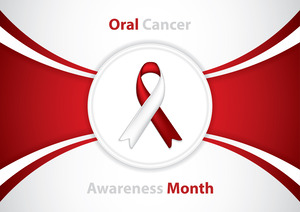
About 54,000 new cases of oral cancer are diagnosed every year in the United States alone. It almost goes without saying that the disease can be life-threatening if it isn’t treated in time. Increased awareness about oral cancer can go a long way toward making sure it’s detected early. That’s why your dentist is encouraging you to learn more about this disease as part of Oral Cancer Awareness Month.
Who Is Likely to Develop Oral Cancer?
There are several factors that could potentially lead to the development of oral cancer. For starters, both men and women can have it, but men typically have a higher risk. Additionally, more than two-thirds of the people who have been diagnosed with this disease are at least 55 years old.
Research shows that people who drink heavily or use tobacco products are more likely to suffer from oral cancer. If you want to protect your overall health, it is recommended that you limit your alcohol consumption and give up tobacco altogether.
In recent years, HPV (human papillomavirus) has been linked to cancers of the oropharynx (the part of the throat that includes the back of your mouth). This is thought to be the primary cause of oral cancer in younger adults.
How Can You Make Sure Your Oral Cancer Is Identified Early?
Even if you aren’t part of a group that has a high risk for oral cancer, it’s not worth taking any chances. You should be proactive about ensuring that any cancer that develops in your mouth is caught before it has a chance to spread.
How can you do this? Funnily enough, the best strategy is one that you’re likely already practicing: visiting your dentist twice a year for a checkup. While checking for cavities, your dentist can also screen for oral cancer and inform you immediately if any symptoms warrant a biopsy.
What are Some of the Symptoms of Oral Cancer?
Of course, you should also be able to recognize some of the potential warning signs of oral cancer on your own. Different people have different symptoms, but in many cases, you might notice:
- Sores that don’t heal.
- Oddly discolored patches.
- Unusual lumps or rough spots.
- Persistent oral pain, tenderness, or numbness.
- Changes to your bite.
- Feeling like something is caught in your throat.
- Hoarseness.
- Loose teeth.
- Dentures that no longer fit.
Get in touch with a professional immediately if you experience any of these symptoms for more than two weeks. They don’t always point to oral cancer, but it’s a possibility that you should always take very seriously.
About the Author
Dr. Karl Arakelian is a highly experienced dentist who has been in the field for close to three decades. He is proud that dentistry gives him a way to directly serve his community. He always keeps an eye out for signs of oral cancer when examining his patients’ smiles. To schedule a consultation with Dr. Arakelian at his Bradford practice, visit his website or call (978) 373-0901.






